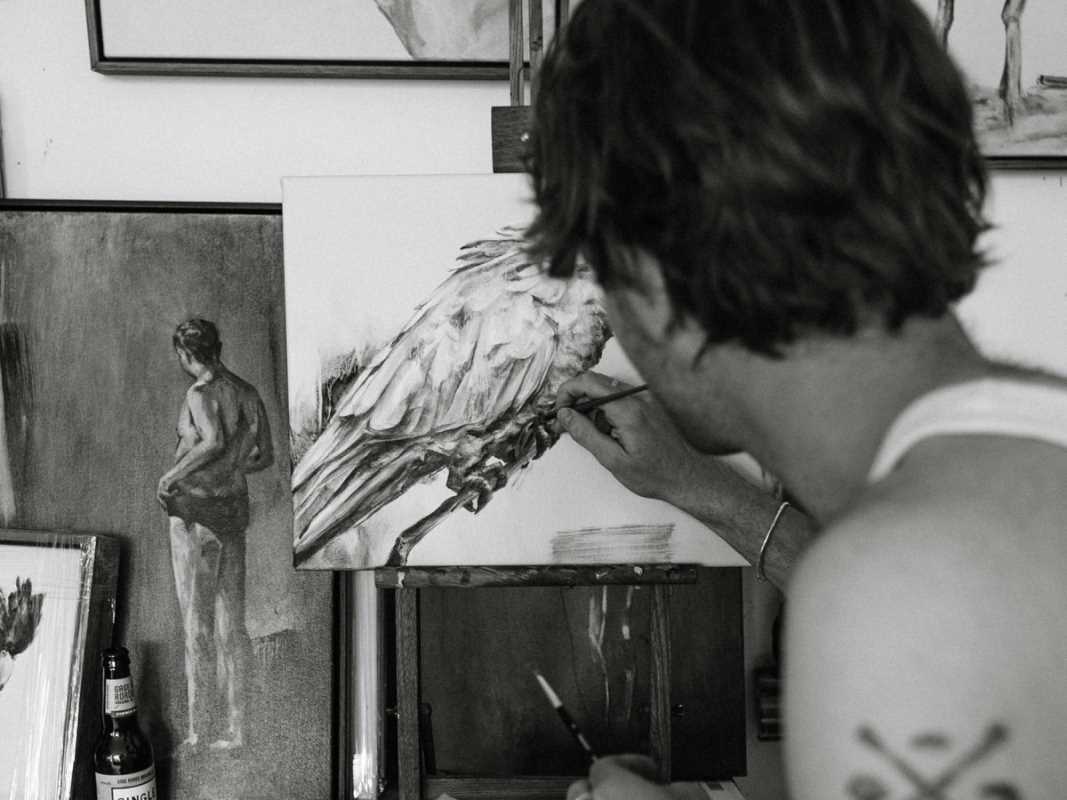Life moves fast, doesn’t it? One day, you’re a teenager who can’t stop doodling in the margins of your notebooks, jamming with high school friends in a garage band, or spending hours on your latest DIY project. Then suddenly, years fly by, and those once-beloved hobbies get boxed up like forgotten treasures in an attic. Between jobs, responsibilities, and life’s endless hustle, it’s easy to drift away from the little joys that used to light you up.
But what if you could bring those hobbies back? Rediscovering old passions isn’t just about revisiting the past for nostalgia’s sake. It’s about reigniting something in your present that feels meaningful, creative, and uniquely you. Whether it’s picking up a paintbrush, dusting off that old guitar, or getting back into hiking trails you used to know by heart, those hobbies have a way of grounding you, sparking joy, and making your life feel richer.
This guide will help you explore how to reconnect with hobbies you once loved, why making time for them is worth it, and how they can transform your day-to-day life.
The Benefits of Rediscovering Old Hobbies
Bringing past hobbies back into your life isn’t just about the activity itself. It’s about what that hobby means to you personally and how it can impact your emotional and mental well-being. Here’s why revisiting them could be one of the best decisions you make:
1. Reignite Creativity
Maybe you loved writing short stories, sketching characters, or baking elaborate cakes back in the day. When you revisit creative activities, you reawaken that part of yourself that thrives on imagination and self-expression. Creativity has this incredible ability to expand your perspective and inspire solutions in other areas of your life, from work to relationships.
2. Reduce Stress and Boost Mental Well-Being
Many hobbies are naturally meditative. Think about the calm that comes from knitting row after row, repainting an old piece of furniture, or tending to plants. By focusing on something you enjoy, outside of obligations or screens, you can create a sense of mindfulness that lowers stress and helps you recharge. It’s a great way to “pause” and shake off life’s constant pressure.
3. Reconnect with Your Identity
Hobbies often reflect who we are at our core. They show what makes us feel alive, passionate, and curious. Rediscovering past pastimes is like finding pieces of yourself that might’ve gotten lost in the grind of adult life. It’s a chance to remember who you are outside deadlines and to-do lists.
4. Tap Into a Simple Source of Joy
Sometimes, life feels like it’s all about accomplishments, productivity, and hitting goals. But hobbies remind us that joy can come from the simplest things. They’re not something you have to do perfectly or professionally. You can bake cookies, play video games, or join a weekly pickup soccer game purely for the fun of it.
5. Strengthen Social Connections
Many old hobbies had a social aspect. Were you part of a sports team, book club, or local theater group? Rekindling a hobby could reintroduce you to communities of like-minded people, helping you rebuild connections or even form new ones.
How to Identify the Hobbies You Once Loved
If you’re ready to revisit your hobbies but aren’t sure where to start, here are some practical ways to jog your memory and figure out what you used to love:
1. Think Back to Your Childhood
What did you spend hours on as a kid? Did you love making model airplanes, playing pretend, or trying every sport you could? Sometimes, our earliest joys hold clues to hobbies that still have meaning today.
2. Reflect on Your Teen and Young Adult Years
What was your go-to activity after school or on weekends? Even hobbies that feel like a “lapsed phase” (looking at you, guitar collecting) could be worth revisiting. Consider how those interests evolved over time. For example, maybe your love for photography in high school could shift into a creative outlet like phone photography or editing digital content.
3. Look Around for Forgotten Supplies
What’s sitting in your closet, attic, or garage right now? An old set of paintbrushes, a dusty yoga mat, or a camera you haven’t touched? Seeing those tools of the trade might remind you of the passion you once had.
4. Ask Your Friends or Family
Often, loved ones remember more about your past passions than you do. They might remind you about how obsessed you were with video games, crafting cosplay costumes, or attending open mic nights. Their insights could spark your next step.
5. Think About Activities That Made You Lose Track of Time
The best hobbies make hours feel like minutes. Ask yourself, “What did I use to do that made me forget the clock?” Your answer is probably worth exploring again.
Tips for Getting Back Into Old Hobbies
Now that you’ve pinpointed a hobby (or two) to revive, it’s time to take action. Here’s how to ease back into them without putting too much pressure on yourself:
1. Start Small
You don’t need to jump in with both feet right away. For example, if you loved gardening years ago, buy a few small plants instead of overhauling your backyard. Start with what feels manageable to build momentum.
2. Make Time for It
Treat your hobby like a commitment, not an afterthought. Schedule a recurring block of time for it, whether it’s 30 minutes in the evening or a full Sunday afternoon. The more consistent you are, the easier it becomes to stick with it.
3. Reframe It as Play, Not Work
Remember, hobbies are supposed to be enjoyable, not something that adds stress to your life. Don’t worry about how “good” you are or whether you’re doing it perfectly. Focus on the fun of the experience itself.
4. Get Support
Sometimes, sticking to a hobby is easier when you have accountability. Join a local group, class, or online forum related to your hobby. Surrounding yourself with people who share the same interest can motivate you to keep going.
5. Upgrade or Refresh Your Supplies
Feeling excited about a hobby can start with having tools you love. Upgrade to that new sketchbook you’ve had your eye on, or find an app that supports your hobby (like a digital piano app or a cooking tutorial platform). Having high-quality materials can reignite your enthusiasm.
6. Track Your Progress
Documenting your hobby, whether through journaling or photos, can make the experience more rewarding. You’ll be able to see how you’ve grown over time, which will motivate you to keep at it.
7. Be Realistic
Life is busy, and that’s okay. Even engaging with your hobby once a week is better than not at all. Be kind to yourself and give your passion room to grow at its own pace.
Reclaiming Hobbies in a Busy Life
It’s easy to say, “I just don’t have the time.” But making space for hobbies doesn’t have to mean completely overhauling your schedule. Here are some tips for prioritizing what matters:
- Set Boundaries: Protect time for your hobby by setting limits on screen time, work hours, or overly packed schedules.
- Pair It With Routine Activities: Listen to music you used to love while driving or paint while watching your favorite show.
- Make It Social: Combine hobbies with relationships. For example, host a movie night focused on films you loved with friends.
Hobbies aren’t about perfection or achievement. They’re about rediscovering a part of yourself that still deserves a place in your life.
Bringing an old hobby back to life is about immersing yourself in the unique joy of doing something for no purpose other than because you love it. Whether it’s strumming a guitar, piecing together a puzzle, or baking cookies that remind you of childhood, these activities reconnect you to who you are at your core.
 (Image via
(Image via


.jpeg)


